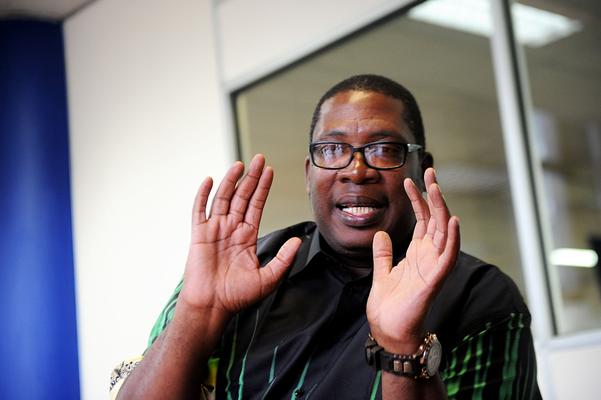Do schools teach for the sake of the subject rather than the sake of the pupil?
The current system desperately needs to be reevaluated, or it will continue to produce graduates with little to no experience.

South Africa – Johannesburg – 10 May 2019 – MEC of Education in Gauteng Panyaza Lesufi bid farewell to the education team, he spoke to The Saturday Newspaper about his experience and moving on. Picture: Nokuthula Mbatha/African News Agency(ANA)
Gauteng member of the executive council (MEC) Panyaza Lesufi has highlighted the importance of equipping pupils with adequate skills from school level. Speaking at a farewell ceremony to bid farewell to educators headed to the United States Space and Rocket Centre, Lesufi said it was important to expose learners at primary schools to the adventures of aviation.
The MEC indicated the much-needed exposure learners needed to encapsulate drive, education, and will towards their desired industries. Schools stand to benefit from the educators’ trip, he told the media.
“When they come back, it benefits everyone.
“When I was taught in school, [we] thought that what was taught at school” would lead you to your desired field.
“Now we are bringing the practical element to say in aeroplanes, a communication system used in aeroplanes uses the following calculations. When the aeroplane goes up, there are measurements. We’re bringing that element, and I’m really looking forward to our learners learning about these things – rather than learn about things that I don’t want to make example off.
Lesufi’s omission highlights an obvious need to evolve the educational landscape. In 2019, industries such as becoming an online developer exist. Developing a specific product electronically, using specific and complex language to develop a product or service in the form of an app or electronic banking systems. These require years of practice to perfect.
In saving time and decades of delaying experts from entry into specific fields, wouldn’t incorporating these fields into curriculums be more beneficial?
Couldn’t a doctor, developer, marketer, architect, or teacher be more knowledgeable if they were introduced to their desired fields at a school level? I remember my tertiary orientation where one of my new colleagues had no computer skills. They were from one of those schools seemingly forgotten by the system that answered calls to better schools.
That lack of computer skills for my now friend meant a delayed understanding, anxiety and another module all together – since all assignments were required in printed format.
Had my now educated friend been exposed to certain skills at an earlier stage, a lot of things would have been simpler and more straight forward.
That’s the point veteran celebrity mathematics teacher William Smith made when he questioned if pupils needed Shakespeare in their syllabus.
No, Mr Smith was not ridiculing the timeless classics such as Hamlet and Othello, all he did was question the syllabus which would, if not adapted, leave graduates highly skilled but jobless.
Smith, at the risk of sounding controversial, posed the question on whether the current school syllabus was constructed for the sake of the pupil, and not for the sake of the subject.
“A lot of stuff that we teach, I don’t know what the pupils are going to do with it later on in life. I would tend to come back a bit to say let’s look at what we’re going to use [later on in life]. For example, tables, in arithmetic, are crucial, absolutely crucial. You must know that nine eights are 72 (9 x 8 = 72). You mustn’t think about it.
“Do we need quadratic equations? I’m not saying we don’t, I’m just asking the question. Now, this is going to sound controversial. Do we need Shakespeare? What is Shakespeare going to do for the average person in a career? How many of your listeners have actually used Shakespeare to their advantage? They’ve used tables, they’ve used arithmetic. Have they used quadratics? I don’t know. Sometimes I get the sense that we teach subjects for the sake of the subject rather for the sake of the pupil.”
For more news your way, download The Citizen’s app for iOS and Android.








